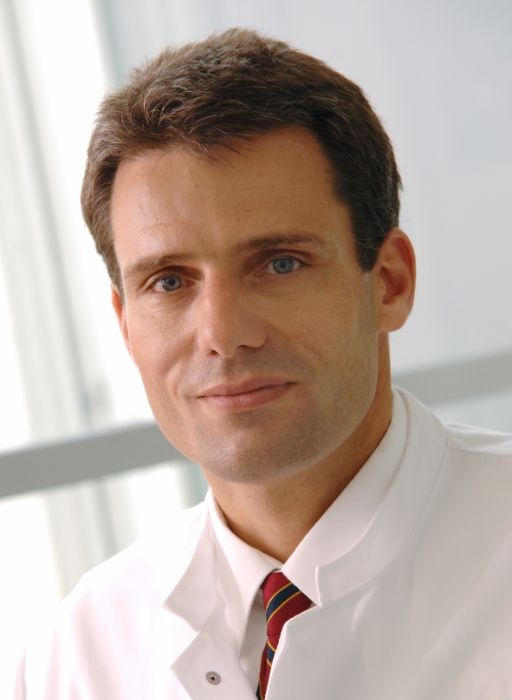Hier finden Sie detaillierte Profile der DKTK Faculty-Mitglieder mit Programmschwerpunkten und Forschungsfokus in der Forscherdatenbank. Kontakte aller DKTK Wissenschaftler:innen finden Sie im DKTK Intranet.
Forscherdatenbank

Prof. Dr. med. Jürgen Weitz, MSc.
Universitätsklinikum Carl Gustav Carus an der TU Dresden
Fetscherstraße 74
01307 Dresden
Programme
Exploitation of Oncogenic Mechanisms (EOM)
Molecular Diagnostics, Early Detection, and Biomarker Development (MDEB)
Molecularly Targeted Therapy (MTT)
Übersicht
Prof Dr Jürgen Weitz is the chairman of the Department of Visceral, Thoracic and Vascular Surgery of the University Hospital Dresden and one of the Managing Directors of the NCT Dresden. The clinical and scientific interests of his department comprise surgical oncology in general with a focus on advancement of minimally invasive and robotic surgery, implementation of intraoperative navigation as well as preoperative planning using augmented and virtual reality scenarios. The department also performs translational molecular biology research aiming at identification of molecular markers to stratify patient treatments with a focus on colorectal, gastric, and pancreatic carcinomas. The research branches into the following topics:
(1) Role of cancer-derived exosomes in tumor biology and their potential as biomarkers.
(2) Characterization of gastric and intestinal stem cells and the analysis of their role in the development of gastrointestinal tumors.
(3) Role of cytoskeletal and endosomal/autophagic mechanisms in tumor cell migration and metastasis in pancreatic cancer.
(4) Immune regulators of pancreatic, gastric and colorectal cancers with a focus on T cell immunobiology.
(5) Detection and characterization of circulating tumor cells (CTC) and disseminated tumor cells (DTC).
The department has a special expertise in the cultivation and characterization of organoids as patient derived tumor models for development and preclinical testing of cancer therapies. To support the clinical implementation of the translational research the clinical trials center is planning and executing national and international mono- and multi-centric clinical trials.